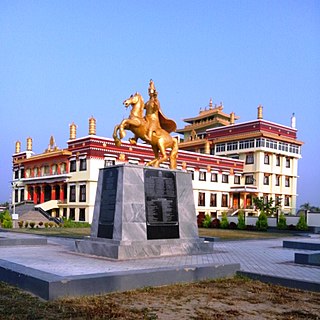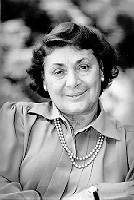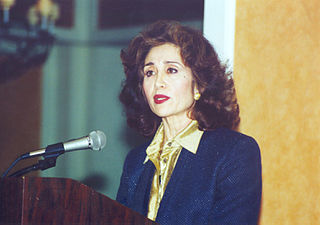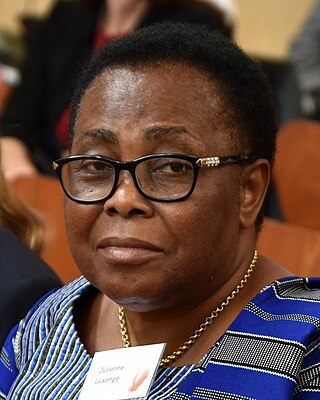Related Research Articles

The Lhotshampa or Lhotsampa people are a heterogeneous Bhutanese people of Nepali descent. The Lhotshampa were estimated to comprise around 35% of the Bhutan's population by the U.S. Department of State as of 2008. The Lhotshampa are predominantly Hindu and Buddhist too, who speak the Nepali language.

Bhutan has diplomatic relations with 55 of 193 member states of the United Nations and the European Union. Bhutan's limited number of such relations, including the absence of formal relations with any of the permanent members of the United Nations Security Council, is part of a deliberate isolationist policy of limiting foreign influence in the state. This stance has been safeguarded by close relations with India, of which Bhutan has previously been considered a protected state.

Bhutan officially the Kingdom of Bhutan, is a landlocked country in South Asia situated in the Eastern Himalayas between China in the north and India in the south. With a population of over 727,145 and a territory of 38,394 square kilometres (14,824 sq mi), Bhutan ranks 133rd in land area and 160th in population. Bhutan is a constitutional monarchy with a king as the head of state and a prime minister as the head of government. The Je Khenpo is the head of the state religion, Vajrayana Buddhism.

Bhutanese refugees are Lhotshampas ("southerners"), a group of Nepali language-speaking Bhutanese people. These refugees registered in refugee camps in eastern Nepal during the 1990s as Bhutanese citizens who fled or were deported from Bhutan during the protest against the Bhutanese government by some of the Lhotshampas demanding human rights and democracy in Bhutan. As Nepal and Bhutan have yet to implement an agreement on repatriation, most Bhutanese refugees have since resettled in North America, Oceania and Europe under the auspices of the Office of the United Nations High Commissioner for Refugees. Many Lhotshampa have also migrated to areas of West Bengal and Assam in India independently of the UNHCR.
Immigration to Bhutan has an extensive history and has become one of the country's most contentious social, political, and legal issues. Since the twentieth century, Bhutanese immigration and citizenship laws have been promulgated as acts of the royal government, often by decree of the Druk Gyalpo on advice of the rest of government. Immigration policy and procedure are implemented by the Lhengye Zhungtshog Ministry of Home and Cultural Affairs, Department of Immigration. Bhutan's first modern laws regarding immigration and citizenship were the Bhutanese Citizenship Act 1958 and subsequent amendments in 1977. The 1958 Act was superseded by the Bhutanese Citizenship Act 1985, which was then supplemented by a further Immigration Act in 2007. The Constitution of 2008 included some changes in Bhutan's immigration laws, policy, and procedure, however prior law not inconsistent with the 2008 Constitution remained intact. Bhutan's modern citizenship laws and policies reinforce the institution of the Bhutanese monarchy, require familiarity and adherence to Ngalop social norms, and reflect the social impact of the most recent immigrant groups.
Numerous ethnic groups inhabit Bhutan, but the Ngalop people who speak the Dzongkha language constitute a majority of the Bhutanese population. The Bhutanese are of four main ethnic groups, which themselves are not necessarily exclusive – the politically and culturally dominant Ngalop of western and northern Bhutan, the Sharchop of eastern Bhutan, the Lhotshampa concentrated in southern Bhutan, and Bhutanese tribal and aboriginal peoples living in villages scattered throughout Bhutan.
Human rights in Bhutan are those outlined in Article 7 of its Constitution. The Royal Government of Bhutan has affirmed its commitment to the "enjoyment of all human rights" as integral to the achievement of 'gross national happiness' (GNH); the unique principle which Bhutan strives for, as opposed to fiscally based measures such as GDP.

The Tibetan diaspora are the diaspora of Tibetan people living outside Tibet.
Goldhap refugee camp is a small refugee camp in Nepal populated by just over 4,600 Bhutanese refugees as of 2011. Because of its dwindling population, the UNHCR merged Goldhap into the nearby Beldangi refugee camps. The camp is located near the settlement of Goldhap, along the Thulo Bato Road, directly abutting the Charali Jungle in Jhapa.
Nepali Australians are the citizens and residents in Australia whose ethnic origins lie fully or partially in Nepal. Nepali started to settle in Australia from the 1960s, but the vast majority of Nepali Australians arrived after 2006.
Nepal is home to 40,490 refugees officially recognized by the United Nations High Commissioner for Refugees (UNHCR). Indian, Tibetan and Bhutanese refugees account for a large majority of Nepal’s refugee population.

Slavery in Bhutan was a common legal, economic, and social institution until its abolition in 1958. In historical records, unfree labourers in Bhutan were referred to as slaves, coolies, and serfs. These labourers originated mostly in and around Bhutan, Assam, and Sikkim, and were the backbone of Bhutan's pre-money feudal economy.

Ginetta Sagan was an Italian-born American human rights activist best known for her work with Amnesty International on behalf of prisoners of conscience.
Bhutanese Americans are Americans of Bhutanese descent. According to the 2010 census there are 19,439 Americans of Bhutanese descent. However, many Nepali-Bhutanese came to the U.S. via Nepal as political refugees from that country and are registered as Nepali Americans; often leading to the actual numbers of Bhutanese Americans being underreported. More than 92,323 Bhutanese Nepalis have been resettled in the United States, with the largest single community being approximately 27,000 in Columbus, Ohio.

Sima Wali was one of the foremost Afghan human rights advocates in the world, serving as an international campaigner for the liberties and empowerment of refugee and internally displaced populations. She was the Chief Executive Officer of Refugee Women in Development (RefWID), Inc., a global non-profit organization that advocated for the civil rights of refugee women and girls fleeing from conflict and for their equitable reintegration into their societies. She was also the vice president of the Sisterhood Is Global Institute, the world’s first feminist think tank.
Bhutanese Nepali literature refers to the literary works in the Nepali language by Bhutanese people. This started from 1962 with the publishing of Kuensel.
Dilliram Sharma Acharya is a poet of the Nepali language from Bhutanese diaspora. He currently lives in Norway. He started writing during his life as a refugee after he was exiled from Bhutan.

Ethnic cleansing in Bhutan refers to acts of violence to remove the Lhotshampa, or ethnic Nepalis, from Bhutan. Inter-ethnic tensions in Bhutan have resulted in the flight of many Lhotshampa to Nepal, many of whom have been expelled by the Bhutanese military. By 1996, over 100,000 Bhutanese refugees were living in refugee camps in Nepal. Many have since resettled in Western countries.

Julienne Lusenge is a Congolese human rights activist recognized for advocating for survivors of wartime sexual violence. She is co-founder and President of Female Solidarity for Integrated Peace and Development (SOFEPADI) and director of the Congolese Women's Fund (FFC).
British Bhutanese are people of Bhutanese ancestry who are citizens of the United Kingdom or resident in the country. This includes people born in the UK who are of Bhutanese descent, and Bhutan-born people who have migrated to the UK.
References
- Notes
- Citations
- ↑ Gold, Taro (5 February 2013). The Tao of Mom: The Wisdom of Mothers from East to West. Andrews McMeel Publishing. p. 113. ISBN 978-0-7407-8743-0.
- 1 2 "Ginetta Sagan Award Winners". Amnesty International. Retrieved 26 April 2014.
- ↑ Cahill, Kevin M. (1999). A Framework for Survival: Health, Human Rights, and Humanitarian Assistance in Conflicts and Disasters. Psychology Press. p. 58. ISBN 978-0-415-92235-7.
- 1 2 "Mangala Sharma". From Exile to Resettlement. Retrieved 26 April 2014.
- ↑ Born in Bhutan and exiled